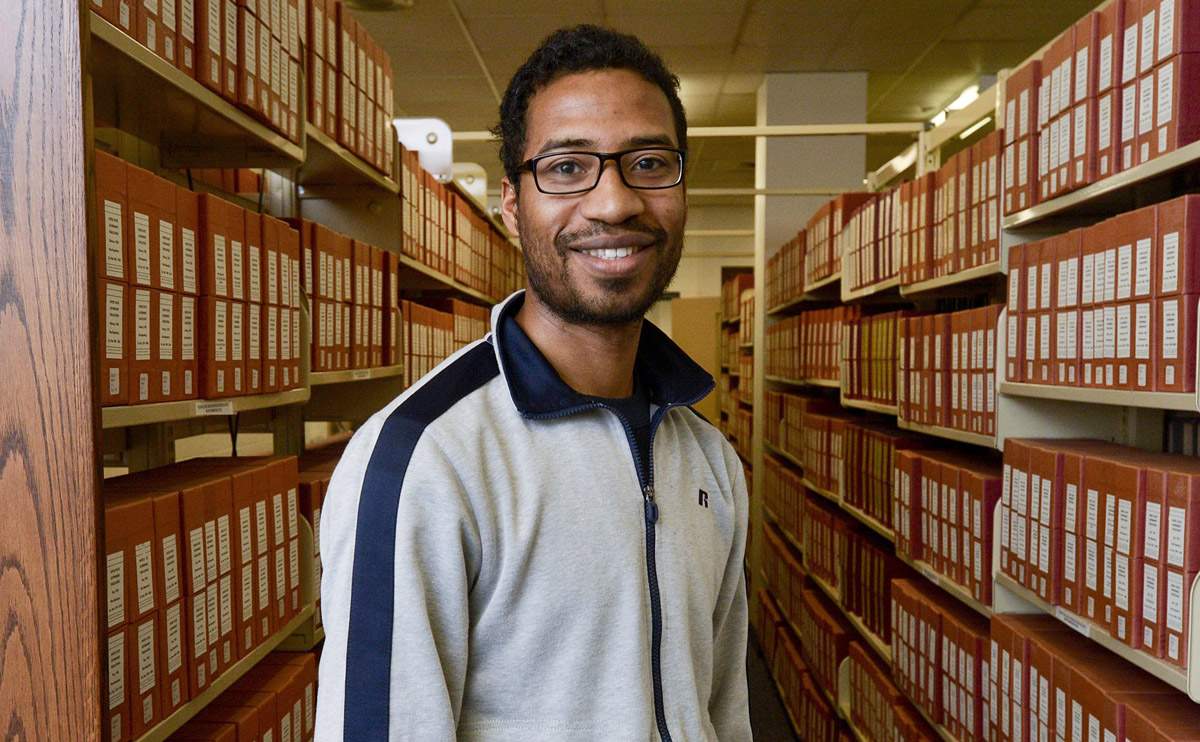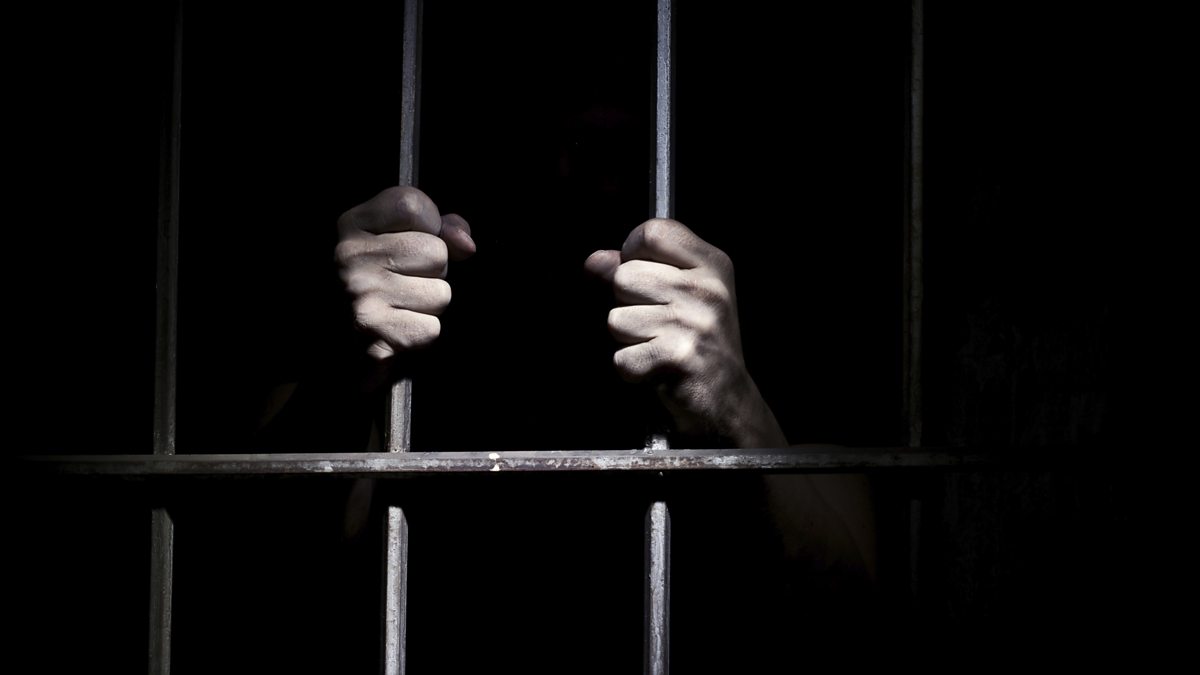GoErie.com
By Erica Erwin
Hamdi Echkaou, a Fulbright scholar from Morocco, poses Jan. 20 for a portrait in the Baron-Forness Library at Edinboro University of Pennsylvania. Echkaou is spending the academic year at the university, as he works on his dissertation about the role of internet and social media in Arab Spring. SARAH CROSBY/ERIE TIMES-NEWS
It started in Tunisia and, four years ago today, spread to Egypt: a growing chorus of voices demanding change.
Hamdi Echkaou saw the Arab Spring take hold in his native Morocco firsthand on Feb. 20, 2011, when thousands of protesters gathered in the capital city of Rabat to call for constitutional reforms, better living conditions and access to jobs.
“They didn’t fear the police beating them or anything,” Echkaou said. “They had the power of unity. They could stand in front of Parliament” and be heard.
Echkaou, a Fulbright scholar, is spending the academic year at Edinboro University of Pennsylvania as he works on a dissertation about the role of the Internet and social media in the Arab Spring, the name given to a wave of demonstrations, protests and civil uprisings in Arab countries starting in late 2010.
Working with Andrew Smith, a communications studies professor who taught and researched in Morocco in the late 1990s, he is examining how the Internet and social media helped bring together different groups and interests to propel the Arab Spring forward.
Inspired by protests in Tunisia, Egypt and other countries, the Moroccan demonstrators called for basic rights, like freedom of expression; improved social conditions, especially in marginalized communities; financial security; and an end to corruption, among other demands, Echkaou said.
“What I saw is that (it) was a very sensitive period in which the people brought everything they were feeling inside, out,” Echkaou said.
They posted those feelings online as well. Social media and discussion threads became safe spaces for people of varying backgrounds and views to hear and be heard, and the comments and posts created a ripple effect.
“People believed what they posted online and they went out on Feb. 20 and their voices were heard by the educated and noneducated, and they brought the monarchy to its knees,” he said. “The king responded.”
King Mohammed VI remained in power but agreed to some constitutional reforms.
“They voiced their demands, and they were fearless,” Echkaou said of the protesters. “I was proud.”
The movement resulted in lasting changes, he said.
Though censorship still exists, “now you find that if (someone) sees behavior that is not compatible with his or her values, they just say it,” Echkaou said. “They are no longer fearful.
“There is not this closed mentality,” he said. “(People) are open to discussing topics, new topics, topics that differ from their own voice.”
Attacks like the one on the French satirical magazine Charlie Hebdo won’t change that, though there are still topics considered taboo for print or debate, Echkaou said.
“The right of freedom of expression is not something we can let go,” he said. “We will fight for it.”
ERICA ERWIN can be reached at 870-1846 or by e-mail. Follow her on Twitter at twitter.com/ETNerwin.






